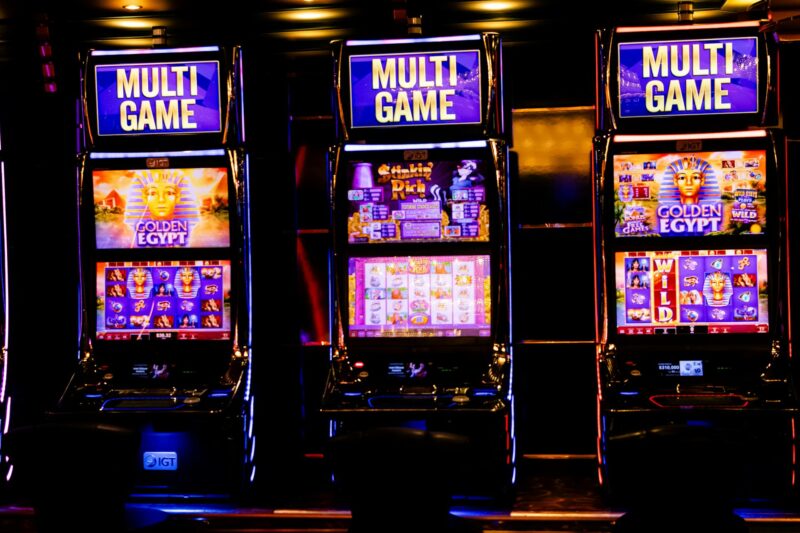
Blockchain technology and online gambling are becoming integrated in new ways and are becoming part of Canada’s digital entertainment industry’s shifts. From provincially managed lottery platforms to mobile-first gaming, Canadians are turning to digital leisure at a rapid pace. Within this environment, the rise of the crypto casino Canada market highlights how digital assets are being woven into both financial practices and cultural habits.
Online Gambling’s Expanding Role in Canada
Online gambling has been increasing in visibility and in legal forms across Canadian provinces over the last decade. Ontario, British Columbia and Quebec have their own regulated gambling platforms and the expansion of private operators has created competitive markets. This has provided several opportunities to players and gambling entertainment habits are being transformed to digital spaces.
The same growth trends are happening across the globe. Grand View Research has stated that the online gambling market globally was worth 78.66 billion in 2024 and by 2030, will be worth more than 153 billion. This means that even though Canada’s online gambling market is small, it is still growing. There is potential in Canada’s market for this type of growth with the high rate of internet connectedness, mobile phone usage and online service consumer demand.
Younger individuals have new perspectives that help shape the future. Those raised on mobile devices and streaming entertainment have particular expectations and experiences in the online gambling space.
How Crypto Casinos Work
Crypto casinos operate on a new model that is distinct from classic online gambling to a greater extent than is the case with traditional gambling platforms. Instead of relying on bank transfers and credit cards like traditional casinos do, crypto gambling allows its users to deposit, bet and withdraw cryptocurrency like Bitcoin and Ethereum. The blockchain technology that supports cryptocurrency provides a publicly accessible and immutable ledger that records all bets and transactions, providing players with a clear view of the casino’s operation and the movement of their funds.
This system provides a level of certainty and rapidity that players appreciate. However, it is more likely than traditional casinos to expose players to significant undisclosed risks. By Chainalysis’s estimates, USD 2.17 billion in cryptocurrency losses will have been stolen globally from crypto services in 2025, with the most significant attack on ByBit involving losses of USD 1.5 billion. The level of risk and losses involved in crypto gambling underscores the need for Canadians to assess the level of trust they have in gambling.
Canada’s Fintech Strength and Consumer Readiness
Canada’s reputation for innovation within Financial Technology remains strong. The three hubs of innovation within Canada, Toronto, Vancouver and Montreal, allow for the formulation of new companies specializing in payments, digital wallets and custody solutions. This new ecosystem of innovation prepared the groundwork for the integration of blockchain technology into gambling consumer products.
Canadians are very active on the internet and digital gaming, mobile payments and streaming services are part of the everyday life of the average household. This combination of financial infrastructure and digital behavior patterns means that Canada can be used as the primary test location for blockchain technology casinos.
Like other technologies, the use of gambling technology integration, innovation and blockchain technology in residential gaming will require the use of and trust in the technology. The popularity of digital wallets and contactless systems will give Canadians access to gambling technologies and blockchain innovation in residential gaming and trust in the technology.
Lessons from Global Digital Engagement
To envision Canada’s future, we must first consider other nations. In 2023, the Indian Premier League final streamed on JioCinema and 32 million concurrent viewers were logged, making it one of the largest online audiences ever documented for a sporting event. While cricket does not play the same cultural role in Canada as hockey or basketball, the lesson is clear: When every digital platform is reliable and easily accessible, the audience becomes mass.
Even Canada’s own sports, from hockey to basketball, reflect a similar appetite for online engagement. Fans are more than ready to receive and engage on mobile devices, streaming services and interactive live stats and they enjoy fantasy sports betting. In this respect, the convergence of finance, technology and digital entertainment crypto casinos mirrors global digital engagement.
Canada’s regulated crypto casinos will be driven by multiple relevant factors. Canadians passionate about sports and with a high level of digital engagement will continue to demand that Canada adopt crypto casinos. Global online gambling legislation, projected to be worth more than double its current value by 2030, will further push Canada’s adoption. Younger Canadians will push for crypto casino adoption and they will continue to wager with digitally first Canadian payment systems. Finally, Canada will adopt crypto gambling casinos with regulated advanced blockchain technology, gambling legislation and protective user measures.
Crypto casinos are more than just another form of gambling. They signify another crossing point in the fusion of fintech and leisure for the Canadian consumer. For the consumer, however, they illustrate leisure entertainment and eco-gaming in particular, accessibility. For analysts, however, they signify how embedded blockchain is in everyday activities.


